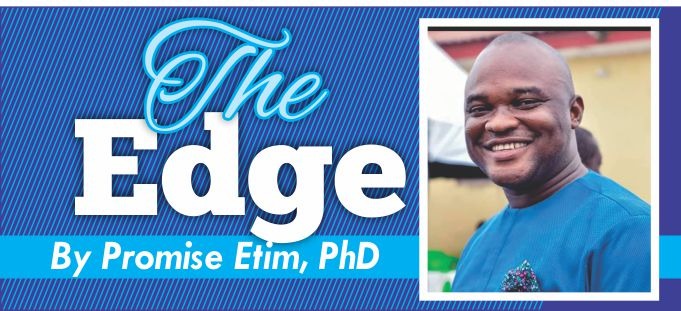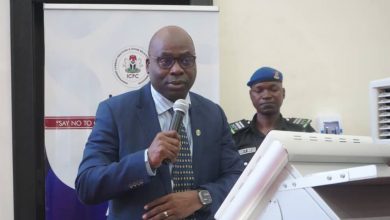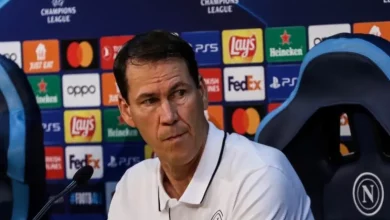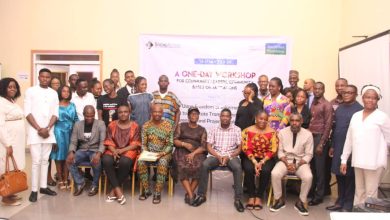Uncategorized
The New NPFL Season And Opportunities For Investment
By Promise Etim
October 24, 2019
5 minutes read

It is no longer news that the 2019/2020 Nigerian Professional Football League (NPFL) season will kick-off on November 3. This is as contained in the agreement reached by the League Management Committee (LMC) and the club owners (Chairmen and representatives of the twenty participating teams), during an extraordinary general meeting held Monday October 14, in Abuja.
The new season will feature twenty teams, as against twenty that were captured in the 2018/2019 season, which was abridged into two groups of twelve each. This was largely due to the fact that the LMC and club owners taught it was wise to close in on other African Nations, whose respective calendar as at 2018 were in correlation with European countries.
The crisis that rocked Nigerian Football following the emergence of Amaju Melvin Pinnick as president of the Nigerian Football Federation (NFF) in 2014, played a significant role in distorting the progress of the domestic league, as court injunctions obtained by the Chris Giwa led faction on several occasion, halted smooth competition, since the NFF is the supervising body of football in the country.
It is unfortunate to mention that the crisis, almost led to Nigeria’s inability to partake in Confederations of African Football (CAF) competitions, impaired progress of most National teams, brought about disunity in the football body, almost earned Nigeria a bit of FIFA’s sledged hammer, and most importantly discouraged investors.
The Nigerian Professional Football League is the elite division of football in the country, and provides direction to the lower leagues. This article will attempt to explore the prospect and challenges of the new football season, which is expected to commence in less than a fortnight.
In May 1992, after numerous consultations between club owners, organizers and other stakeholders, English teams broke away from the First Division, to form what was called the Football League, leading to the formation of the Premier League, with inaugural campaign starting on August 15, same year.
Twenty Seven years later, the English Premier League (EPL) is the world’s most adored and followed league with an estimated viewing population of 1.35 billion across the globe, as at the end of the 2018/2019 season (May, 2019). This was a reported 11.3% increase from what was obtainable as at the end of the 2017/2018 season.
The English football authorities, the club owners and other stakeholders were able to achieve this because what they have been able to put up locally has been encouraged and cherished by the locals, attracted investment, and commercialized to a large extent to the entire world. This is evident in the likes of Nigerian Bottling Company, commercial banks, telecommunication giants and other multinationals, who on a consistent basis have invested in the English League, directly or indirectly.
These investments in the EPL can be traced to the pitch panels, TV adverts, branding of some aspect of participating clubs etc. It is also worthy of mention that before the increased patronage of the EPL by multinationals in Nigeria, organizations like Barclays Bank, have in the past decade or so, been into business with the Football Association of England, and would always be of preference, because of their domestic nature.
In 2015, billionaire businessman and Africa’s wealthiest, Alhaji Aliko Dangote, was reportedly interested in buying majority shares at Arsenal Football Club of London. Arsenal’s net worth is put at $2.3bn (about N840bn) at January 2019, which is 0.035% of the budget of a Nigerian Professional Football League side for a season (N300 Million).
While Dangote looks at the other direction, the likes of Dr Ifeanyi Ubah, Kunle Soname, Dr D. K. Olukoya, have made significant gains, investing in the NPFL through FC Ifeanyi Ubah of Nnewi, Remo Stars of Shagamu and MFM FC of Lagos respectively. These gains may not be felt in terms of finances, by virtue of inability of Nigerians to optimize opportunities the league itself offer. They have certainly left indelible marks in the very many talents they have helped to be discovered, one of such being Stephen Odey, who currently features for Genk, in the Belgian first division.
As disturbing as it sounds, most clubs in the league are directly or indirectly sponsored by Government of various states in Nigeria. The 2019/2020 season will not be an exemption, as only two of the twenty participating teams(MFM and FC Ifeanyi Ubah) are independent sponsored, while the other eighteen depend on fund from their respective state Governments.
The situation seems pathetic and difficult, as the most private individuals feel they should have a stake in the clubs, hence the call for share to be sold by clubs. As promising as it sounds, the clubs may not fancy these prospects, at least for now, given the fact that investors are yet to show absolute commitment in terms of financing.
Aside from buying shares in clubs, which a lot of persons have considered as the best way to have a stake, other opportunities abound, which multinationals are yet to key into and invest. Such opportunities can be traced to the area of kit sponsorship, travels, stadium ownership, marketing and branding etc.
For instance, in 2018, a reputable airline, Dana Air, secured partnership with two NPFL sides, Akwa United FC and Heartland FC, to airlift them to games, thus becoming official airline of the clubs. This deal by all standards is beneficial to both ends. While Dana FC takes the glory using the brand to promote its business, the two clubs have also heaved huge sigh of relief, as Dana has consistently flown them for games to major cities of the country.
Aside from Kano Pillars, Enyimba, Rivers United and a few others who had kit sponsorship deals with investors like BUA Group, Dubic, Eunisell etc, other clubs have struggled to secure similar deals. Earlier in the month 2016 champions Rangers International announced a deal kit sponsorship deal with a foreign investor, which many believe will be the first of its kind in the country. These are opportunities clubs through their marketing unit can showcase to potential investors to attract them. One can imagine the prospect of having your brand name on every kit of a club for an entire season.
It is pertinent to state that, in the near future, it will become tedious of government to continually sponsor clubs in the league, hence the need for them to explore alternative means of funding through effective marketing of their brands. This will relieve them of some pressure and also promote healthy competition. Efforts can also be made in the direction of listing clubs on the Nigerian Stock Exchange (NSE) for people to key into.
On the part of government, football is business and should be treated as such. There is need for the sponsors of the clubs to look at bringing on board people with vast experience, business skills and development optimization goals, to ensure they adequately plan, execute and appraise programs for the clubs they are financing, so in the long run such clubs can be self-sustaining.
The withdrawal of Super-Sports from coverage of the NPFL in 2018 has also impaired growth of the league, as stakeholders cannot showcase the content to potential investors. There is urgent need to get the games back on TV, why charging the owners of the respective clubs, to provide enabling environment in terms of facilities and resources, for optimal performance.
Akwa Starlets (Dakkada) FC, Jigawa Golden Stars, Adamwa United and Warrior Wolves are new clubs, who will feature in the league, following their promotion from the Nigerian National League (NNL). Enyimba International of Aba are the defending champions.
Rivers United, Rangers International, Kano Pillars, Delta Force, Abia Warriors, Heartland FC, Lobi Stars, MFM, Plateau United, Sunshine Stars, Katsina United, Wikki Tourists and Nasarawa United, Abia Warriors and Akwa United are the other participating teams.
October 24, 2019
5 minutes read




